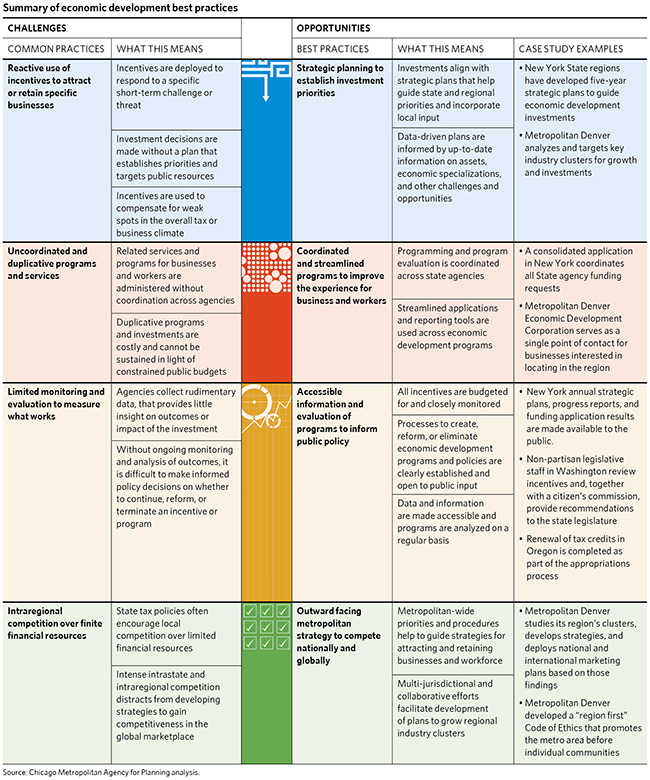Metropolitan Chicago is home to a highly diverse and globally competitive economy. To sustain the region's economic vitality, the GO TO 2040 comprehensive plan recommends organizing the region around its existing and emerging clusters of specialization. CMAP has conducted analysis of two of these clusters – freight and manufacturing. Those two reports recommended that the state and region reorient economic development strategies toward these and other key drivers of economic vitality. Economic development strategies deserve further exploration as they include a wide variety of programs, financial incentives, and practices carried out at every level of government, as well as by organizations outside the public sector.
CMAP's new report, Reorienting State and Regional Economic Development: Lessons Learned from National Examples, examines current challenges and opportunities in economic development policy and practices. The report is a scan of national practices, it includes three case studies of state and regional efforts to utilize strategic planning, coordinate and streamline programs, improve transparency and accountability, and pursue outward-facing strategies for regions to compete nationally and internationally. Case studies presented in the report include New York State agencies' coordination with its regional economic development councils; metropolitan Denver's cluster support and regional collaboration; and Washington and Oregon's analysis and transparent information sharing around tax incentives. The report's findings on current challenges and opportunities to reorient economic development, as well as case study examples, are summarized in the following chart.
Click for larger image.Next Steps for Metropolitan Chicago
Based on this research, CMAP envisions opportunities for the State of Illinois and metropolitan Chicago to improve upon current economic development practices. In the next phase of this project, CMAP will examine current economic development policies in metropolitan Chicago and Illinois. It will analyze the state and region's existing challenges, suggesting opportunities for stronger responses to larger economic trends – namely, increased global competition and constrained public resources.
